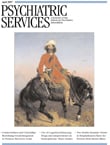Melancholia: The Diagnosis, Pathophysiology, and Treatment of Depressive Illness
Dr. Fink and Dr. Taylor have written a comprehensive textbook on the subject of melancholia, which is differentiated from the modern-day concept of depression. The authors argue that even the word depression is a misnomer. "The Swiss-born psychiatrist Adolph Meyer had a tin ear for the finer rhythms of English and therefore was unaware of the semantic damage he had inflicted by offering 'depression' as a descriptive noun for such a dreadful and raging disease."
The authors tackle the subject of melancholia in a comprehensive way as senior academic psychiatrists from a "clinician-scientist" point of view. So this book is meant for practicing clinicians and students of psychiatry and related fields to gain a wider understanding of the topic. The concept of melancholia is differentiated from the watered-down term "depression" in a reaction to the advent of DSM , especially after the DSM-III widened the concept of the illness. The name "major depression" was given to lesser conditions as "characterological depression." The authors argue that aggressive marketing by drug companies has helped to "justify the use of antidepressant drugs to the largest number of persons." The authors give evidence throughout the book that melancholia and depressive illness as they define it is a treatable brain disease.
The authors bring many years of experience to the subject. Dr. Fink, an emeritus professor of psychiatry and neurology at the State University of New York at Stony Brook, is known as the "Grandfather of American Electroconvulsive Therapy" (ECT). He has stood fast as a proponent of ECT as the most effective antidepressant treatment, despite derision from anti-ECT splinter groups. He has authored many works, including books and journal articles, on ECT. Dr. Taylor is currently an emeritus professor of psychiatry at Rosalind Franklin University of Medicine and Science. He has written interesting papers on the subject of descriptive psychopathology, including several articles questioning the Kraepelinian division of the psychotic and mood disorders.
The authors collaborated on an earlier textbook, Catatonia: A Clinician's Guide to Diagnosis and Treatment , in which they argued that catatonia is a specific syndrome that should be viewed nosologically as being akin to delirium and dementia. In both textbooks, the authors display original thinking and questioning of the phenomenological classifications of current American psychiatry. Only with this kind of inquiry can true understanding of a subject be gained. Beyond this, the authors go on to define the melancholic syndrome in terms of diagnosis, prognosis, management, and treatment strategies. They differentiate melancholia from similar psychiatric and medical conditions.
As with any textbook written in a comprehensive manner, the recent data may be outdated in several years. However, the historical information and broad understanding of the complex subject matter will be valid for many years to come.



